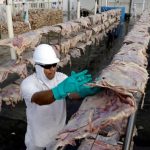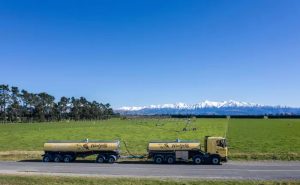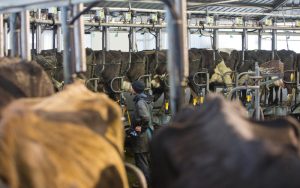
By Gord Stewart, a sustainability consultant with a background in environmental management and economics.
Moving into our new home when shifting to New Zealand from Canada some 20 years ago, we invited the next-door neighbours over for a meal.
“Do you want us to bring the steak or sausages?” was the reply. I thought, but didn’t say: Are those my only options?
Kiwis love their meat – and dairy – and their production has long been a backbone of the export economy. But will this always be?
In our climate-constrained world and with the health impact of our food choices increasingly clear, change is afoot.
An inconvenient truth for individuals happy with the Kiwi diet and Big Ag folks keen on the status quo: animal protein is not necessary for a healthy diet. Indeed, a whole food (that is, unprocessed) plant-based diet is healthier. Make that WFPB for short.
The likes of Drs Neal Barnard, Caldwell Esselstyn, Mark Craig, Shireen Kassam, Michael Greger and many others can fill us in on this. There are no quacks here. All are practising physicians. And all of them are advocates for WFPB nutrition.
Barnard, founder of Physicians Committee for Responsible Medicine, has a special interest in diabetes care. Esselstyn, a cardiologist and surgeon long affiliated with the renowned Cleveland Clinic, would rather prevent, slow and reverse heart disease through proper diet than try to “fix it” with surgery.
Craig, a lifestyle medicine and general practitioner based in Auckland, is a founding member of Evidence Based Eating NZ. Kassam is leading the charge in the United Kingdom. Greger’s repertoire includes continuing medical education lectures for physicians. We can all enjoy his short, entertaining videos based on the latest research – see More/NutritionFacts.org.
Research shows that a WFPB diet can have an ameliorating effect on, among other things, cardiovascular disease, diabetes, obesity, inflammatory arthritis and the likes of bowel, breast and prostate cancer.
Canada has taken a cue from all of this. The country’s food guide for healthy eating long featured milk, meat, fish, eggs and cheese. Until 2019, that is. Now the guide says: “Choose protein foods that come from plants more often.” Milk is not included in the guide, nor is cheese.
Meanwhile, New Zealand continues to export vast quantities of milk powder as a low-value commodity destined to be an ingredient in unhealthy processed food.
Our overseas markets for this product could dry up if the current interest and massive investment in precision fermentation pays off. Protein as a food ingredient is being produced by precision fermentation at increasingly high quality and lower cost, while virtually eliminating environmental impact. The technology is also helping to improve the quality of plant-based alternatives.
Farmers hoping to thrive in the years to come might want to ask their leaders how seriously they are taking these threats. And what they are doing about it.
Also a threat and a challenge, if we hope to meet our international climate action commitments, is the fact that nearly 50% of our greenhouse gas emissions come from agriculture. Livestock farming contributes almost all of this, with dairy leading the way. (These are government figures, easily found online for those who are interested.)
There are those who contend that such figures are irrelevant because “people need to eat”. Yes, we need to eat, but, as detailed above, we do not need to eat animal protein.
Fonterra has long been a prime target of climate activists for obvious reasons. It is NZ’s largest single GHG emitter. Its farms, factories and milk tankers produces nearly a fifth of the country’s total emissions. Its sheer impact is surely one reason the Supreme Court has agreed to hear a case against Fonterra and six other large corporations over their contributions to climate change.
“Going to court” has become necessary as successive governments have chosen to avoid the issue. They have consistently pushed off the time when farmers must take responsibility for the GHG emissions they produce. The newly elected coalition government, as one of its many regressive policies, will further extend this free-rider period.
This sits well with an industry that favours protectionist, short-term thinking.
The stance of farming leaders has always amazed me. Surely they know we face a climate crisis? Don’t any of them have children or grandchildren? Do they worry that overseas competitors more committed to sustainability might outcompete them? How do they plan to meet the rising standards of customers? Why are they so opposed to taking meaningful action right now?
All this at a time when Intergovernmental Panel on Climate Change scientists say that land-use change and a shift to plant-based diets are crucial if we are to successfully tackle the climate crisis.
We can thank those who are adopting regenerative farming practices, going organic, diversifying away from livestock farming or converting entirely out of it, restoring wetlands and rewilding land. We just need a whole lot more of them, and fast.
More on Whole Food Plant-Based Nutrition
Evidence Based Eating NZ – www.ebe.nz
www.Esselstynfamilyfoundation.org/resources
You can now read the most important #news on #eDairyNews #Whatsapp channels!!!
🇺🇸 eDairy News INGLÊS: https://whatsapp.com/channel/0029VaKsjzGDTkJyIN6hcP1K




















